Ahead of his Series Mania keynote address, the president of international production discusses the state of the industry, why there is too much doom and gloom, and life after The Crown
Heavy is the head that wears The Crown, but heavier still is the one that needs to follow a six-season streaming behemoth. “What next?” is never far from mind for Wayne Garvie, president of international production for Sony Pictures Television (SPT), owners of The Crown producers Left Bank Pictures. Usually, he’s got an answer. But in a gloomy period for an industry that’s still smarting from two Hollywood strikes, a grisly advertising downturn and public service broadcasters in crisis, even Garvie warns of an imminent “reset button”.
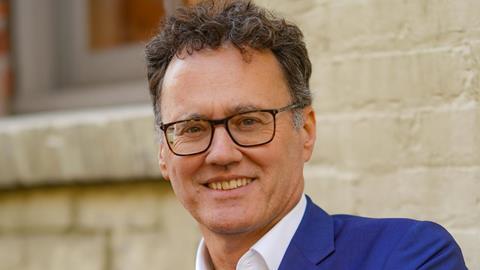
The UK executive declared to delegates at the 2022 MipTV market that Sony aspired to be the “biggest drama studio in Britain”. It was a bold claim, but SPT had the goods with three of the leading scripted production companies in the UK in Left Bank, Eleven (Sex Education) and Bad Wolf (Doctor Who).
Two years later, and the TV landscape is vastly altered both overseas and in the UK. Scripted remains the key focus for SPT internationally, but Garvie tells Screen International he won’t be acquiring more UK drama outfits, and will instead focus on maintaining his portfolio, which includes minority stake partners Fable Pictures (Anne Boleyn), Blueprint Pictures (A Very English Scandal) and Eleventh Hour Films (Alex Rider).
Garvie’s cautious business acumen in challenging times tracks with Sony’s modus operandi as an independent studio and content provider that — perhaps wisely — never set up its own major streaming play, unlike its rivals.
“A few years ago, people were telling us that we should be running our own streaming platform, and [Sony Pictures Entertainment CEO] Tony Vinciquerra was very clear about that: ‘We’re not going to do it’,” says Garvie. “Now everyone’s saying we’re the heroes of the hour and we look magnificent because we didn’t rush into stuff.”
In a wide-ranging interview with Screen ahead of his Series Mania keynote, Garvie talks about the impact of the 2023 strikes, smart ways of sourcing IP, his friendship with Jeremy Clarkson and why he’s not competing with Fremantle and Banijay.
Do you have a manifesto for your Series Mania keynote?
The point I want to get across is that there’s too much doom and gloom at the moment. Things are tough, and there are lots of former colleagues who are out of work, and small producers struggling, and there is definitely a reset button coming. But at the same time, the drama market is bigger than what it was 10 years ago and great content is still going to get commissioned. And it’s also going to change again.
A few years ago, distribution felt a bit like, “Well, the streamers are going to buy everything,” but now you need a very strong distribution arm. We’re going to move back to more traditional models where streamers are going to look for partners and won’t take all rights. I think there will still be a lot of content made. There are obviously questions around price, but the market got terribly inflated and there’s a dose of realism coming in.
It feels like we’re currently in the ‘reset’ period right now. Are you saying the worst is yet to come?
I don’t think it’s going to get a lot worse. The world of non-scripted is particularly challenged, and there’s probably a need for new, different formats. Some of the formats are tired and old; people have to up their creativity.
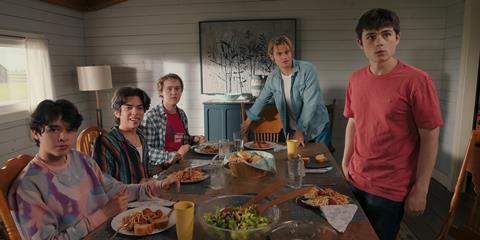
But I think there will be two kinds of drama: there’s going to be the long-haul license model, which is probably under £3m [$3.8m] an hour total spend, which will be a mix of a UK or European license fee, a tax incentive and a distribution advance. You can kind of make that work. But beyond that, the higher budgets are going to have to be something you sell to a streaming company for all rights. And probably less of those [will be] commissioned outside the US.
But what I think is interesting is if you look at Netflix and their top 10 shows in a week, you’ve got The Tourist, One Day, Fool Me Once. It’s really interesting how these British shows continue to [have an impact] — and that isn’t going to end. We’ve [concluded] Sex Education and The Crown — that particular era for us has come to an end. But at the same time we also had a huge hit with My Life With The Walter Boys. I always err on the side of optimism.
The Crown ending must be a massive shift for the company
Having been there at the start of Left Bank, it’s been such a wonderful adventure. The Crown is such a big thing, and you do have to rethink and reinvent yourself, inevitably, when something like that comes to an end.
I hear there’s been some discussion of a spinoff
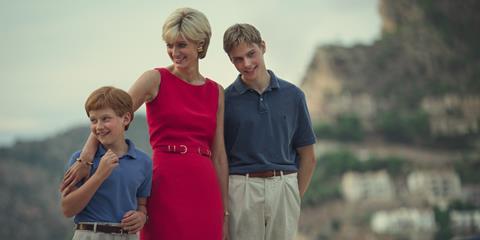
People will always say, “Why don’t you do this”’ or “Why don’t you do that?” But for me, The Crown is Peter Morgan’s take on the royal family, which I think Netflix would agree with as well. I’m very fond of Peter, and have got a great relationship with him. I think he needs to go and do other things now, and I think that’s absolutely right. But at some point will we tell other royal stories? We may well do. We will do more things with Peter, because he’s fantastic.
Do you still aspire to be the biggest drama studio in Britain?
A lot of it is maintaining the position we built over the last five years and maintaining and growing those companies. I don’t envisage us looking to acquire any more drama companies, certainly in the UK, but what we are interested in are talent deals. We’ve done a couple of actor deals, and we’ve done the deal with The Guardian, which is a different way of sourcing IP.
If you look at Mr Bates Vs The Post Office, that illustrates the importance of great journalism behind contemporary stories.
I assumed The Guardian deal was more documentary-focused
I think we probably see The Guardian deal as scripted, and that’s one of the reasons I got [CEO of Sony Pictures Entertainment’s Motion Picture Group] Tom Rothman involved as well. They’ve come in to co-fund it. The idea is that that’s a relationship that can fuel movies, US drama, Aussie and British dramas.
How closely are you involved on the film side?
I’m focused on TV, but a lot of things happen around personal relationships. I’ve spent time with [3000 Pictures president] Elizabeth Gabler. Tom Rothman has always been supportive to me individually, and we talk a lot about taking IP that’s owned by the movie studio and sharing it and working on TV things. Elizabeth and I have got a couple of projects that we’re co-developing, which have come from her picking up IP.
It makes sense that you don’t want to grow the drama portfolio in the UK given the challenging period for commissioning at the moment. But for your existing companies that rely on those anchor commissions from the likes of a BBC or Channel 4, is there any concern?
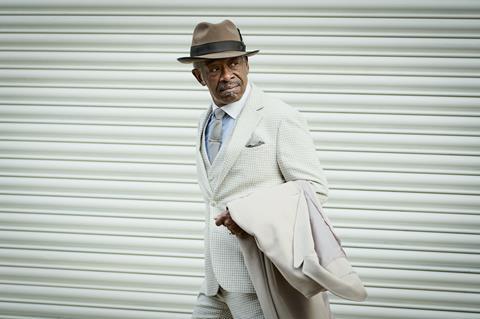
Oddly we haven’t had that much that we’ve sold traditionally in the last five years to the BBC or ITV. And we’ve sold more in the last eight-12 months than we ever have. We have a lot with the BBC — Dope Girls, This City Is Ours, Mr Loverman, Dear England and Moonflower Murders, which is a follow-up to Magpie Murders.
As producers, it’s very important for us to support the British broadcasting community as well as embracing the global streamers. Because we need all parts of that ecology to work.
How much of a toll did the WGA and SAG-AFTRA strikes have on your production pipeline?
The strikes affected us because there were a number of projects — and big projects from Left Bank and Bad Wolf — that had American writers attached, and all WGA writers. And we couldn’t progress with those so they got held back, which impacted our business.
We thought the American buyers would then look to British content and non-scripted content — and we didn’t see that happen. In fact, it was the reverse.As people [reassessed] what their core businesses were, we found that we weren’t getting presales in America. We’re beginning to see it picking back up again. We’ve got a deal with one American broadcaster that I can’t talk about until it’s greenlit.
In what ways is it picking up again at the moment?
People are beginning to reorient themselves and are looking for what their next range of programmes are going to be. I think this year’s LA Screenings [in May] will be very interesting. We have a raft of British shows coming through and to get those sales, particularly in America, will be certainly very interesting.
Are you involved in the talks between Pact and Equity over the new TV and streaming contracts? The consultation period for Equity members will open up soon.
Yes, we’re Pact members, so we’ll be involved in that.
Are you worried about a potential impasse in those talks that could lead to industrial action?
I think the US is exceptional in the way its market is, and the way it’s historically developed, where it’s film and TV. We have less film over here [in the UK] and much more TV. I’d like to think it’s more collaborative.
I was curious about SPT label Stellify’s Who Wants to Be a Millionaire? and whether it’ll return to ITV given the tumult around Jeremy Clarkson following his Sun column on Meghan Markle. Will he keep going?
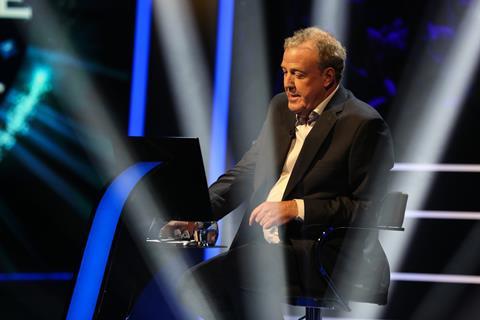
I don’t know. I haven’t had a conversation. Because the show is still on air we always agreed we’d see how it would perform. I know Jeremy would like to do it. And I would like him to do it. Because he’s fantastic at it and it’s my busman’s holiday once a year to spend a week with Jeremy in Manchester making Millionaire. So I’d be really disappointed if we don’t do it again. I think it will come down to performance.
What did you make of the backlash over Clarkson?
We are friends. We have lots of arguments about politics. And we have very different views of the world but I also find him clever, smart, engaging and a loyal man. And sometimes he gets himself into a bit of hot water, that with a bit more thinking he wouldn’t get himself into. But look, he apologised and I think he realised he overstepped on that particular thing, and what he said was just not good.
You recently won your first Spanish-language series set in Spain for Prime Video. That country’s content boom has been happening for some time. Why focus there now?
We’ve long had a successful channels business and distribution setup in Spain, so we’ve been established there for a long time. We had a little office set up there to look at English-language Europe co-productions. We did one show [White Lines] and a couple of others we got close to. And then we started to build a relationship with some very good Spanish producers, and because we’re so strong in Latin America and the Spanish language, there is a [similar] cultural identity.
Looking further afield, the scrapped $10bn merger with Zee Entertainment in India was a shock after rumbling along for two years. I imagine that would have had big repercussions for your international team?
Yes and no. We have a brilliant channels business in India. They produce in India, we don’t produce in India. And we deliberately haven’t gone down that route because Indian content tends not to travel — the margins are pretty low — so it doesn’t really meet our criteria. I wasn’t part of [the deal]. That was [Ravi Ahuja, chairman of Global Television Studios and Sony Pictures Entertainment Corporate Development]. It would have been transformational for our wider broadcasting business there, but it’s not going to happen.
When you look at Fremantle or Banijay, which have been making a flurry of acquisitions in the last few years, how does the SPT offering compare?
We are much more considered than perhaps other people about the kinds of investments we make, and when we go for them. We’re never going to be a Banijay. We used to have lots of operations particularly around Europe and around the world and I closed most of them down. We exited them. Why? Because we found they weren’t particularly profitable and if you’ve got lots of these companies you have to manage, that takes a lot of time.
People will always say, ‘Oh it doesn’t take a lot of time.’ It does. And when you’re running a business, in my view, you’ve got to focus on the things that make a difference and move the dial. So we spent a long time closing down and reshaping our business to focus on the things that really meant something. And we grew our business significantly as a result of that disciplined focus.
We do look at things that come along; we looked at All3Media for example, as everyone did. But we’re very disciplined about the value we put on these companies. Sometimes people do deals because they have to, because they need something. We don’t need to do that.
Some say that it’s difficult to get ‘Marmite’ shows across the line now because they’re too risky.
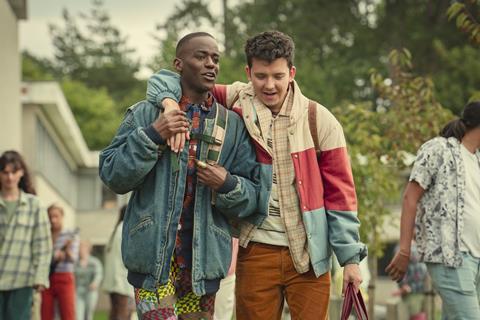
You’ve got to take risks. I had this very interesting conversation with someone very senior at a streamer who was discussing the British content they are looking for. I said, “Would you have commissioned The Crown?” They said, “Yes.” But I said, “No you wouldn’t.” Because it was Netflix that came in for The Crown. Because other Americans couldn’t see that a story about the British royal family would have such a resonance around the world.
And similarly, Sex Education creator Laurie Nunn hadn’t written anything before. It had been passed on by Channel 4. But of all the shows we make, it’s the one show people talk about more than any other. Our business is about risk-taking and failure.
Small indies that hear this might go, ‘Well, if I take a risk right now, my company could go under.’
I get that. I’m speaking in many ways from a very privileged position and I understand that. But I’ll tell you this, Sony International Production was not in a privileged position 10 years ago.We’ve built something as a team over the last 10 years and that’s given us this position.
Andy Harries came to me one day after we’d just bought Left Bank and he said to me, “You’re going to be a bit annoyed with me because I’m going to produce a play in the West End.” And I said, “Oh I don’t know about that.” And that was The Audience. He was expecting me to say, “You should be focusing on television, Harries.” But if Andy hadn’t produced that, we wouldn’t have made The Crown. And that’s about backing your instinct and backing creative people.
This article originally appeared in our sister publication ScreenDaily








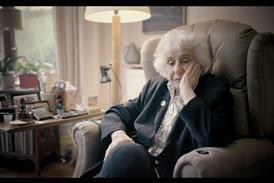






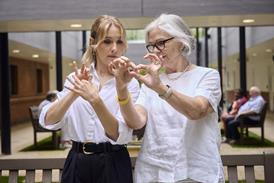










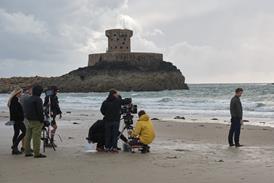






No comments yet